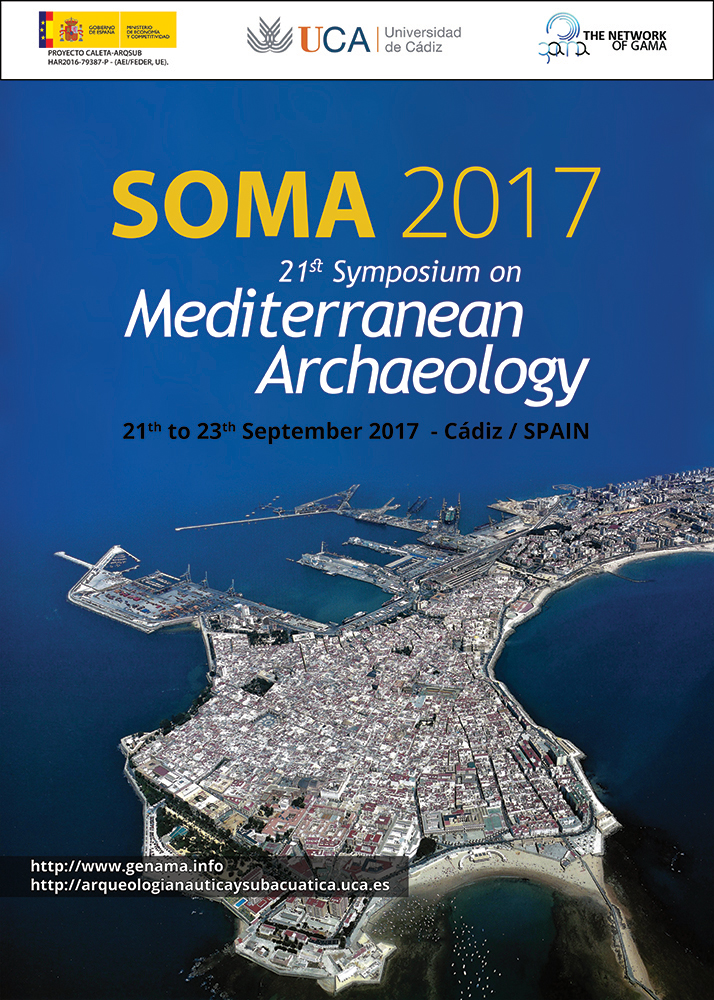Symposium Aims and Goals
The 21st annual meeting of the Symposium on Mediterranean Archaeology (SOMA) will be held in Cadiz, Spain on 21-23 september 2017. As it has been in the past, this symposium will continue to provide an important opportunity for scholars and researchers to come together and discuss their works in a friendly and supportive atmosphere. Our spectrum is growing wider due to the increased importance and knowledge of interdisciplinary works in today’s scientific era.
Since prehistoric times the Mediterranean has been acting as a locale for interaction between groups inhabiting regions that are now studied mainly within the different sub-fields of ancient studies and archaeology. In the recent years, however, the development of research techniques and analytical models of archaeological evidence have identified similar historical paths that are similar if not, in some cases, common to these different areas of the ancient world from the West (Iberian peninsula) to the East (Anatolia and Levant) from the North (Europe, Black Sea Coast) to the South (Maghreb and Egypt). However, throug this Symposium we would like to emphazise the maritime aspect related with this conection. The Mediterranean Sea and his shorelines rather than a frontier favoured connectivity among the social groups that populated it.
The 21th SOMA meeting welcomes presentations related to the above-mentioned topics, focused on the maritime aspects and mainly, results coming from interdisciplinary research involving underwater archaeology. using archaeological data collected within contexts located within the Mediterranean basin and the Black sea area, chronologically ranging from Prehistoric to Modern periods.
The main theme of the 2017 meeting will be “Nautical and Underwater Archaeology for the study of mediterranean societies”. The Northern Black sea region, or the Atlantic Fachade of Europe, became ina antiquity, an extension of the mediterranean activities. Is the aim of this congress to consider this areas not as marginal one but nodal points of the mediterranean activities. This conectivity was made mainly by the sea, it means that maritime landscapes, harbours, anchorage, maritime activities or resources or shipwrecks, are an important research subjet to study, from a nautical and maritime perspective, the evolution of the mediterranean maritime boundaries. In addition to traditional issues related to archeological finds in various parts of the Mediterranean, in 2017 the focus will be on new ideas for the conservation and management of sites of historical and cultural heritage. Will be lectures of the leading specialists for students.
Scientific meeting will be held in the form of plenary and poster presentations. On the basis of consideration of received applications, the organizing Committee will select papers and prepare the program. The opening of the Symposium will be published materials of abstracts in English. According to the results of the event will be published scientific papers in English
As it has been in the past, this symposium will continue to provide an important opportunity for scholars and researchers to come together and discuss their works in a friendly and supportive atmosphere.
There will be also a training course between 25 and 28 September 2017 on Geophysical Technologies applied for underwater archaeological research and other fields, will offer to the students the opportunity to get deeper on this problematic and develop specific abilities on its research.
More information: https://www.genama.info/soma/2017/index.html



